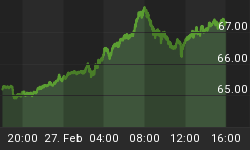Just in case you have been on Mars for the last week, Fannie Mae and Freddie Mac in the U.S. seem to be having some financial trouble. For those outside the U.S., these two private companies are involved in funneling money to the U.S. housing market. Well, funneling might not be the right word. Shoveling, with big ones, might be more appropriate. Now that they are having financial problems a major question must be answered. Who will eat the losses? The shareholders have already had more than a $900 million of market value vaporized. If shareholders' equity does not cover future losses, who then takes the losses? Apparently the Secretary of Treasuries along with some pals in Congress seem to think the taxpayers should take those losses. For you see, if the bonds take the hit, selling new bonds will be difficult. And who does that hurt? The brokers that sell the bonds would get hurt, and that is apparently against the policies of the U.S. Treasury.

For those not aware, 2008 is election year in the U.S. Each and every member of the House of Representatives is up for election, and one third of the Senate. Passing a law that puts those losses on the taxpayers while making bond investors whole would seem to be a long shot this year. Some big risks exist in how this is resolved. Chart to the left is the ownership of U.S. government and agency debt by official foreign institutions, and held at the Federal Reserve. Agency debt includes that of Fannie Mae and Freddie Mac. Foreign official ownership of agency debt is just shy of a trillion dollars. Chart to right shows net purchases of agency debt over past year. These foreign institutions have purchased more than $230 billion of agency debt in past year. How will foreign institutions react to possibility of losses on these holdings? Imagine they will not take it well. This situation is another solid brick in the foundation of the dollar's long-term bear market and the bull market in Gold. So, we have another reason to own Gold in portfolios. Likewise, Israel making an adjustment in Iran's thinking on nuclear weapons is a good reason for owning Gold. However, neither is a good reason to buy Gold on days when the media is hyping these two concerns, and Gold's price is gapping up.
GOLD THOUGHTS come from Ned W. Schmidt,CFA,CEBS, publisher of The Value View Gold Report, monthly, and Trading Thoughts, weekly. To receive these reports, go to http://home.att.net/~nwschmidt/Order_Gold_EMonthlyTT.html.















